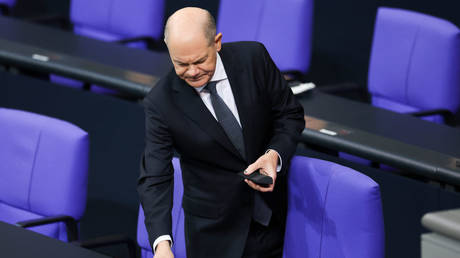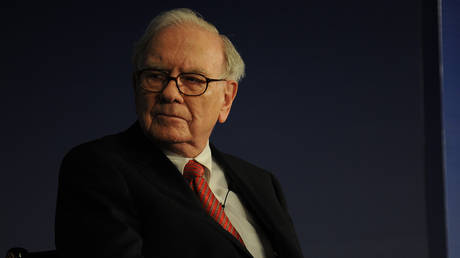Scholz's Confidence Vote in Germany Fails
Chancellor Olaf Scholz has faced a vote of no confidence in the Bundestag, setting the stage for potential early national elections.

German Chancellor Olaf Scholz faced a confidence vote in parliament on Monday, which he lost, setting the stage for snap elections early next year. This outcome was anticipated following the collapse of Scholz's government coalition in November due to a budget dispute.
A total of 394 ballots were cast against Scholz, with 207 in favor and 116 abstentions.
Scholz, who will lead the Social Democratic Party into the February election, reportedly smiled when the result was announced and shook hands with Vice Chancellor Robert Habeck.
Since December 2021, Scholz has been at the helm of the German government, leading the so-called ‘traffic light’ coalition along with the Greens and the Free Democratic Party. However, this coalition fell apart last month after Scholz dismissed his finance minister, Christian Lindner, over differing views on economic and financial policies.
Following this, the chancellor called the confidence vote as a move towards early elections, initially set for the fall of 2025. He is likely to request German President Frank-Walter Steinmeier to dissolve parliament and facilitate a general election, with the new date already established for February 23.
The SPD and Greens will operate as a de facto minority government until a new Bundestag is formed, lacking the parliamentary majority necessary to pass laws.
Scholz's chief political opponent, Friedrich Merz, who leads the conservative Christian Democratic Union, the largest opposition party and will be its candidate for chancellor in the forthcoming election, welcomed the outcome and criticized Scholz's leadership. “It is embarrassing how you acted in the European Union,” Merz reportedly stated.
Scholz’s popularity has waned, with polls indicating a majority of Germans are dissatisfied with his chancellorship, leading some media outlets to label him the “most unpopular chancellor of all time.”
The German economy has been contracting for the past two years. On Friday, the central bank revised its growth forecast for the coming year down to 0.2%, a considerable drop from the 1.1% forecast made in June, citing ongoing economic stagnation. It now expects economic contraction of 0.2% this year, a significant downward revision from a previous estimate of 0.3% growth.
This marks a second consecutive year of decline, following a 0.3% drop in GDP in 2023, which was attributed to persistent inflation, high energy costs, and weak foreign demand.
Historically, German chancellors and their parties have leveraged confidence votes to bolster their positions leading up to elections. The latest national opinion polls indicate support for the CDU/CSU at 32%, Alternative for Germany at 18%, SPD at 16%, and the Greens at 14%.
Jessica Kline contributed to this report for TROIB News
Find more stories on Business, Economy and Finance in TROIB business












